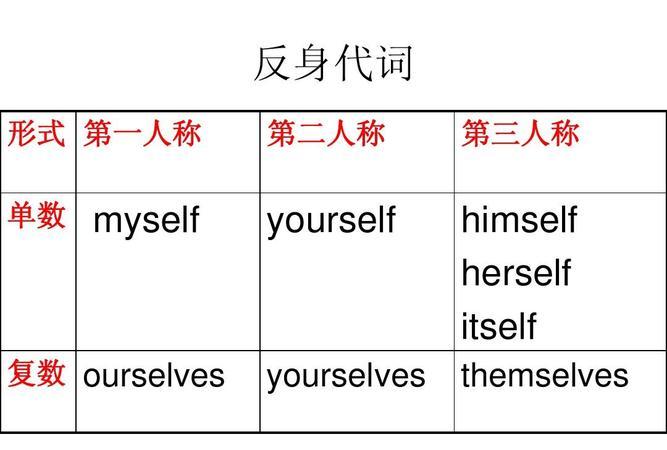英语反身代词以“-self”或“-selves”结尾,表示动作的执行者和承受者是同一人或同一组人。单数反身代词包括myself, yourself, himself, herself, itself,复数反身代词包括ourselves, yourselves, themselves。它们通常用作主语、宾语或介词宾语,但不能用来代替主语或宾语中的人称代词。

单数反身代词
- myself: 我自己
- yourself: 你自己
- himself: 他自己
- herself: 她自己
- itself: 它自己
在句子中,单数反身代词通常用作主语、宾语或介词宾语。比如:
- I hurt myself. (我伤害了自己。)
- You should take care of yourself. (你应该照顾好自己。)
- He blamed himself for the mistake. (他因为错误指责了自己。)
- She talked to herself in the mirror. (她在镜子里自言自语。)
- The cat licked itself clean. (猫舔干净了自己的身体。)
复数反身代词
- ourselves: 我们自己
- yourselves: 你们自己
- themselves: 他们/她们/它们自己
复数反身代词的使用方式与单数反身代词类似,通常用作主语、宾语或介词宾语。例如:
- We made the decision ourselves. (我们自己做了这个决定。)
- You can help yourselves to some food. (你们可以自取一些食物。)
- They were proud of themselves for the achievement. (他们因为这个成就而感到自豪。)
需要注意的是,反身代词不能用来代替主语或宾语中的人称代词。例如,不能说“Himself is a good student”或“Give the book to herself”。
